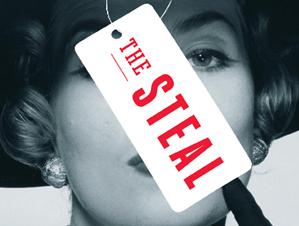History and psychology of shoplifters in ‘The Steal’
Book cover, ‘The Steal’ by Rachel Shteir
Story from Here and Now. Listen to audio for full report.
Each year, shoplifters cost American retailers about $12 billion. That cost gets passed onto consumers, increasing the amount we pay for goods by about $400 a year. But what leads someone to shoplift — is it poverty, mental illness or the search for a thrill?
In her exhaustive new book, “The Steal: A Cultural History of Shoplifting,” author Rachel Shteir traces shoplifting through the ages. In 18th Century England, countless petty thieves went to the gallows.
In colonial America, they favored putting people in the stockades. And in the 21st Century, shoplifting could land you in jail for life, in states where shoplifting is felony.
Shteir also examines the theories behind shoplifting. While many people rob out of necessity, wealthy people might do it because of a mental illness, like kleptomania. But Shteir told Here and Now’s Robin Young that in most cases, people steal out of a sense that they’ve been wronged, and want to get back something.
“Whether that something is a political thing, whether it’s an economic thing, whether it has to do with your mother, I think many people shoplift in order to correct some sort of injustice,” Shteir said.
Read an excerpt from the book on the Here and Now website.
———————————————————————————
“Here and Now” is an essential midday news magazine for those who want the latest news and expanded conversation on today’s hot-button topics: public affairs, foreign policy, science and technology, the arts and more. More “Here and Now”.
